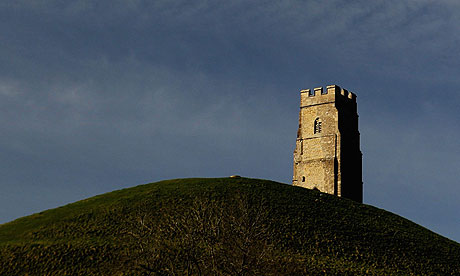History relates the role of heritage in our economic regeneration, says Fiona Reynolds – now government must recognise it too

Blue sky thinking: heritage helps us learn from the past as we progress to the future. Photograph: Matt Cardy/Getty Images
People are passionate about history, as the popularity of programmes from Time Team to Downton Abbey have shown. Membership of the National Trust has just reached four million. But as with many other areas of public concern, heritage is not something that can be left to a free market to address. It needs governments to set the framework.
Ironically, for something as popular as heritage, governments have been slow to realise their role. Indeed, they often had to be dragged to the table.
It took campaigns by academics and antiquarians at the end of the 19th century for the government to pass the first legislation protecting ancient monuments. It took William Morris's arts and crafts movement and the Society for the Protestion of Ancient Buildings to persuade the government of the merits of protecting the fast-disappearing stock of medieval buildings in the late 19th and early 20th centuries
It took the National Trust's leadership during the country house crisis of the 1930s for the government to legislate to protect them. It took the bombing of many of our towns and cities during the Second World War and the subsequent bulldozing of many historic centres to persuade government of the need to list the remaining stock of historic buildings and protect them through the planning system.
And it took the National Trust and fellow heritage bodies to campaign in the mid-2000s under the banner History Matters to get the country talking about history again, calling for better teaching in schools and better protection of the built, cultural and natural history all around us.
Britain has a grand history of civic society stepping in to fill the gap between free market and state action. Today the voluntary sector plays an important and irreplaceable role in caring for and championing our heritage. But the government, of course, does a critically important job – through legislation, national planning policy, funding for English Heritage and others, and its own role in managing a sizable heritage estate.
Truly, heritage is a mixed economy, with the private, public and charitable sectors all having a crucial role to play. But the last decade or so has seen more cynicism than praise for governments of all colours in this field.
Heritage is confined to the smallest of government departments and seen as a small, discrete policy area rather than a central plank of sustainability. English Heritage funding has been cut by a third, losing 200 jobs, with Heritage Open Days picked up by a voluntary sector coalition. And this against a picture of declining heritage funding since 1997, worse even than the arts.
The squeeze on local authority budgets has resulted in a loss of heritage skills and capacity at a local level, for example archaeologists and conservation officers. Were it not for the Heritage Lottery Fund, whose grant has begun to increase again, and whose work has led to a much stronger, bottom up community engagement, heritage activity in the UK would be in dire straits.
But in these days of financial strain, is it right always to look to the government for leadership? The National Trust's success and that of many others – including countless local societies – is something to be celebrated in its own right, not a failure of government.
What must we address as a sector?
• Localism in a national context – getting the balance right
• Making history and heritage accessible and relevant to everyone, without losing integrity – bringing places to life
• Broadening the base of what's thought of as heritage – country houses, back-to-backs, even Abbey Road
There's a final role for government which it must not duck and that is the wider climate that it sets: whether it recognises the importance of quality of life as well as the economy; whether it values the historic and irreplaceable alongside the need for progress.
In the last year, debates over the future of the public forest estate and planning reform have made us question whether lessons have been learned from that past and worry that the value history and heritage represents to society is at the bottom of the pile.
We need to persuade government that heritage has a big role to play in the economic regeneration of the country. These debates would have been familiar to our predecessors. Have any of us learned enough from history to meet the challenges of the future with a better vision to offer?
This is an edited version of a speech from Sussex Conversations: Preserving our material and cultural legacy, a debate hosted by the University of Sussex at the Royal Institution on 19 January 2011
Dame Fiona Reynolds has been director of the National Trust since 2001. Previous roles include director of the Women's Unit in the Cabinet Office, director of the Council for the Protection of Rural England and secretary to the Council for National Parks – follow Fiona on Twitter @NT_DG and the National Trust @nationaltrust
από τη φοιτήτρια Βασιλική Αντωνοπούλου

Δεν υπάρχουν σχόλια:
Δημοσίευση σχολίου